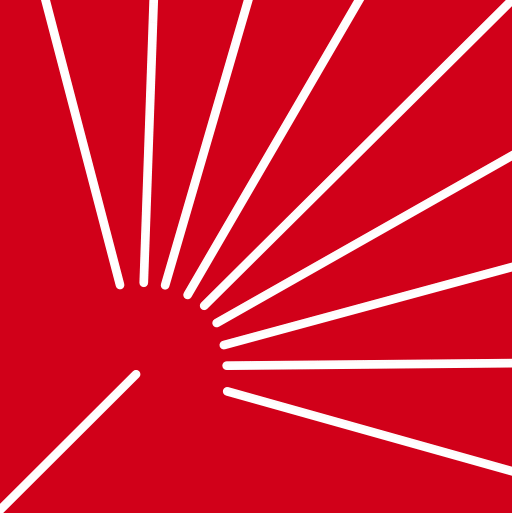
Following prior instructions for the education sector, Agency for VET and Adult Education attaches additional instructions for adult education, so that you can efficiently continue your work. The instructions are based on documents issued by Ministry of Science and Education and the Croatian Institute of Public Health. In the document, you will find recommendations that refer exclusively to the adult education system.
COVID-19 related teaching models and classroom precautions in adult education
September 2020
Following prior instructions for the education sector, we use this opportunity to emphasise that adult education is a part of the unique education system of the Republic of Croatia, which largely encompasses vocational education. Due to that, it is important to adhere to the instructions of the responsible Ministry and take into consideration the system’s specificity.
Precisely because of these specificities, it is necessary and possible to both organise and implement adult education programmes, consistent with the interests of students and employers, labour market and economy needs, adhering to the protocols proposed by MSE, CIPH and local governments.
Adult education institutions have the possibility of organising classroom lectures, following the aforementioned protocols, because it is customary for such education to organise lessons in smaller groups. What simply cannot be ignored is the fact that many adults feel the need to improve their knowledge through immediate, in classroom education.
The goal of these instructions is ensuring the safety of the education process, taking into consideration the specificities based on the age of children and students and different work conditions in educational institutions.
The document is based on the protocols proposed by the Working group formed on August 7, 2020, which are presented in CIPH’s document Instructions for Preventing and Supressing the COVID-19 Epidemic (24 August 2020), and refer to the pre-education institutions, primary schools and high schools in the academic year 2020/2021.
The protocols emphasise the epidemiologic component, while this document emphasises the educational one, which makes them complementary. To have the whole information, it is necessary to study both documents. Should additional questions still arise, the Ministry and the Agency will deal with them through the dialogue with the stakeholders, mutual appreciation and direct communication.
Adult education institutions will be able to choose between three teaching models:
- Model A – classroom teaching
- Model B – combined classroom teaching and distance learning
- Model C – distance learning.
In accordance with the Ministry’s instructions on regular education, adult education institutions will, from 21 September 2020, hold classes based on the Model A, in conformance with the authorised programmes, or the authorised teaching modes of a particular programme.
We emphasise that the aforementioned instructions were approved by CIPH and refer to the classroom precautions according to the Models and Recommendations for Working in the Conditions of COVID-19, academic year 2020/2021, Ministry of Science and Education and are in accordance with the Instructions for Preventing and Supressing the COVID-19 Epidemic in pre-education institutions, primary schools and high schools in the academic year 2020/2021.
Further recommendations for adult education by the Croatian Institute of Public Health:
- Given the fact that the groups are small, it is necessary to always maintain social distancing of at least 1,5 m (ideally 2 m) between participants;
- Groups should, if possible, consist of the same participants, who should try to sit at the same spot in the classroom, of which records will be kept;
- Each person has to wear a mask, even while maintaining social distancing, since the students are mostly adults that can adhere to this rule; the mask does not have to be worn only if it impedes some lessons or content;
- During practical work experience, the participants have to adhere to the recommendations referring to that specific profession; the recommendations are the same both for the participants and the workers in the firm;
- Given the fact that most participants are of legal age, taking body temperature is highly recommended; elevated values measured by a non-contact thermometer should be additionally checked by measuring the temperature in the armpit (participants should be encouraged to bring their own thermometers for such situations). Elevated body temperature values are determined based on the armpit temperature and are 37,3°C or higher.
The recommendations must be adhered to in their entirety.
Based on the continuous following of the aforementioned protocols, it will be possible to organise adult education programmes according to the epidemiological situation. Distance learning will be implemented should the need arise, according to the past experience and instructions. It is crucial to respect the needs and capabilities of the participants.
Institutions which are currently using distance learning (and have authorisations for a different teaching model) will be permitted to finish their courses. Further admittance, or conducting adult education programmes, must conform to the authorised teaching model and the aforementioned protocols by the Ministry and the Agency.
Should the epidemiologic situation worsen, the institutions will choose one of the remaining two models, regardless of the authorised teaching model, taking care of the quality of teaching in order to achieve the planned learning outcomes. After choosing Model B or C, according to the past practice, the institutions will be obliged to regularly inform the Agency of the conducted classes and evaluation.
For further information, please contact: progimis@asoo.hr.
Relying on the past experience of working in the COVID-19 pandemic and the awareness of faults and advantages of particular teaching models, we believe that the adult education programmes will be conducted successfully, for the benefit of both participants and labour market.




SHARE